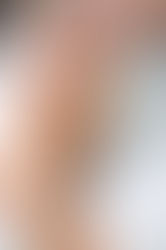Facts About: Scalp Acne
- skincare81
- Aug 6, 2018
- 2 min read
Acne can occur almost anywhere on the body, except the hands and feet because there are no follicles. Acne is triggered by an excess secretion of oil and dead skin cells which clog follicles. Oftentimes these clogged follicles are infected by skin bacteria. Although acne can occur anywhere there are follicles, when it happens on the scalp it can be more difficult to treat.
However, the good news is that scalp acne is much less visible and therefore doesn't trigger as much emotional distress.
Many people will experience an occasional pimple on the scalp. Without treatment, or picking, the pimple will disappear on its own. However, an occasional pimple is not the definition of having scalp acne. Breakouts of scalp acne include more than the occasional pimple which happens consistently inside the hairline.
These breakouts can be irritated by shampoo, brushing, scratching and blow drying. Moderate to severe scalp acne can also lead to greater amounts of skin flaking and a dandruff type appearance of white flakes. These pimples can also become contaminated or infected with other bacteria or microorganisms which cause ringworm or psoriasis.
If you suffer from scalp acne it's important to avoid any greasy products for you hair, including shampoo, styling gel, humectants and conditioners. Use a gentle shampoo during this period while your acne is healing. Some products designed for black people will contain greasy products that can lead to acne.
Treatment of scalp acne starts with clean skin and reducing the inflammatory response. This will help to reduce the amount of breakouts that you experience, and potentially the reduce the number of painful pimples that erupt. When you clean your hair, be sure to clean the scalp as well. Try using baby shampoo which is gentle on the scalp and won't be as irritating to the acne.
Don't use benzoyl peroxide on the pimples on your head because it may bleach your hair white. Once you've used baby shampoo for a week or two so the inflammation on your scalp is reduced, you might want to try using dandruff shampoo. These shampoos usually contain zinc, ketoconazole or ciclopirox which can help to heal the folliculitis that often accompanies acne on the scalp.
Other medications that can help are salicylic acid can be applied with fingers or a cotton ball but may not work well on the scalp.
RESOURCES
Acne: Scalp Acne http://www.acne.org/scalp-acne.html
Kari's World: Scalp Acne Treatments http://www.karisworld.com/skin-care/acne/acne-treatment/scalp-acne-treatments/
MayoClinic: Acne http://www.mayoclinic.org/diseases-conditions/acne/basics/definition/con-20020580
AmericanAthleticInstitute: How to get rid of scalp acne http://www.americanathleticinstitute.org/natural-home-remedies/how-to-get-rid-of-scalp-acne.php
netDoctor: I have Acne Spots on my Scalp http://www.netdoctor.co.uk/ate/skinandhair/205739.html
International Journal of Trichology: Effective Treatment of Folliculitis Decalvans Using Selected Antimicrobial Agents http://www.ncbi.nlm.nih.gov/pmc/articles/PMC3002406/








Comments